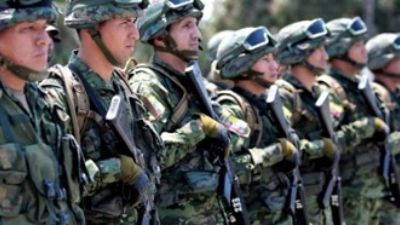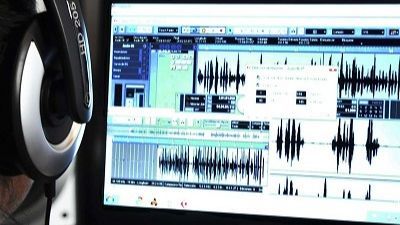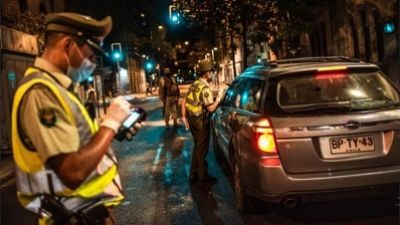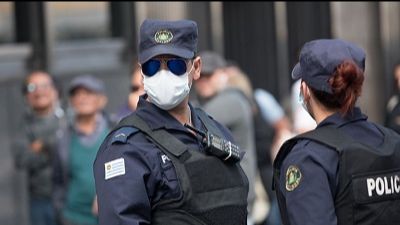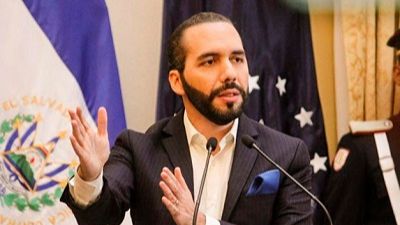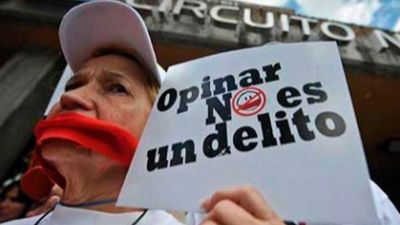
A tool designed by Directorio Legislativo to monitor
regulations with the potential to impact civic space
in Latin America and the Caribbean.
Fundación Directorio Legislativo | April 2020
About Civic Space Guardian (CSG)

Civic Space Guardian (CSG) is a tool designed by Directorio Legislativo to monitor regulations with the potential to impact civic space in Latin America and the Caribbean.
These are regulations affecting freedom of expression, freedom of association, freedom of peaceful assembly, citizen participation and access to public information. To provide a broader overview, we also include the rating assigned by Civicus according to the state of civic space in each country.
Editorial note
The fast spread of COVID-19 has posed enormous challenges for most countries, with the fallout still hard to gauge. Currently, governments of the region have limited their work to essential activities only, all the while taking restrictive steps to contain the virus which only a matter of weeks ago would have been unthinkable: suspending rights and constitutional guarantees, curbing freedom of movement and assembly, deploying security forces en masse, creating new digital tools to survey and control citizens, and restricting access to public information.
While the use – controlled and temporary – of such exceptional measures is permitted under the countries’ constitutions, it neither can nor should become a permanent fixture (G. Agamben, “State of Exception”).
A state of exception is the last resort of the rule of law and even when institutional control mechanisms exist, guarding against abuses of power is near impossible. Complaints surrounding recent heavy handed implementation of quarantine measures is testimony to this. As such, any rise in state surveillance and control amid the pandemic should be carefully monitored by civil society. It is in this spirit that we provide you with this latest edition of Civic Space Guardian.
For more details see: “Restricted rights in times of COVID-19: the challenge of safeguarding health and civil liberties”.
Constitutional Court suspends the progressive use of force in meetings and protests

Ecuador
Impact | Positive
Rating CIVICUS | Narrowed
On June 24, the Constitutional Court prompted a lawsuit filed by civil society organizations and human rights defenders against a regulation that allows the military to the progressive use of force. In their presentation, the plaintiff institutions indicated that the norm approved by a ministerial agreement violates the Constitution by authorizing the Armed Forces to play a complementary role in maintaining internal order. Human Rights Watch warned of the risk of encouraging the use of lethal force and urged Ecuador to nullify the regulation. The suspension is temporary until the Court decides on the constitutionality of the regulations.
Amid a climate of political tension, Congress will monitor judicial wiretapping

Argentina
Impact | Negative
Rating CIVICUS | Narrowed
On June 30, the presidents of both Houses of Congress signed a joint resolution, designating the Bicameral Committee for the Supervision of Intelligence Agencies and Activities responsible for following up on activities carried out by the Directorate for Criminal Justice Assistance Complexes, a body under the jurisdiction of the Supreme Court that performs judicial wiretapping. The decision comes in a context of increasing political tension since the head of the Federal Intelligence Agency, Cristina Caamaño, denounced illegal espionage activities during the government of Mauricio Macri. Since then, the ruling party has tried to withdraw a decree signed by Macri, who transferred judicial wiretapping from the scope of the Attorney General’s Office to the Supreme Court, a move that was rejected by the opposition. Meanwhile, the judicial system is looking into allegations of illegal espionage. In this context, the house of a then secretary of former President Macri was raided. The opposition coalition “Juntos por el Cambio” issued a statement declaring that a sector of the ruling party seems to be “focused on poisoning the political climate.”
Million-dollar fines and prison terms for those who fail to comply with the quarantine

Chile
Impact | Negative
Rating CIVICUS | Narrowed
After the extension until September of the State of Emergency, which was issued by the government to mitigate the impact of COVID-19, Congress amended the Penal Code in order to sanction non-observance of isolation and other preventive sanitary measures. The initiative aims to achieve full compliance with movement restriction orders at a time when Chile is positioned as one of the 10 countries most affected by the pandemic worldwide. As of the entry into effect of the law, on June 20, those who violate the quarantine provisions may be punished with up to 5 years in prison and fines ranging from approximately 1,500 to 15,000 USD. Security forces have already arrested more than 100,000 people for violating sanitary regulations.
Reform to security system criminalizing social protest already in force

Uruguay
Impact | Negative
Rating CIVICUS | Open
On July 14, after Congress gave it final approval, President Luis Lacalle Pou enacted the law that reforms the security and justice system, among other things. The law, which consists of 476 articles and 11 sections, includes the expansion of the scope of the principle of legitimate police defense and the limitation of the right to protest. With its entry into force, protests that prevent free movement will be considered illegitimate. In turn, people who “hinder, aggravate, attack, throw objects, threaten or insult police officers” may be sentenced to 3 to 18 months in prison. The reform incorporates the crime of resistance to arrest into the Penal Code and obliges citizens to identify themselves when a police officer requires it. The reform also prohibits the occupation of workspaces as a strike action. Government sources announced that they are already working on the elaboration of various regulatory decrees. The opposition does not rule out the possibility of endorsing a petition to repeal the articles in question.
Conflict between the government and the Assembly continues over quarantine regulation

El Salvador
Impact | Negative
Rating CIVICUS | Obstructed
In the coming days, the Supreme Court should rule on the appeal presented by the government of President Nayib Bukele to repeal the law protecting the rights of individuals during the State of Emergency. The rule establishes guidelines for public authorities during quarantine. Meanwhile, the social isolation measures dictated by President Nayib Bukele, continue in effect despite having been declared unconstitutional by the Court. The United Nations High Commissioner for Human Rights, along with other organizations in the international community, questioned the government’s actions that undermine the separation of powers and ignore court orders that seek to limit the detention of individuals for violation of the quarantine. OAS Secretary General Luis Almagro tried to counter criticism and questioned those who “invent dictatorships where there are none.”
Bill to control the circulation of viral Internet content advances

Brazil
Impact | Negative
Probability | High
Rating CIVICUS | Obstructed
On June 30, the Senate gave preliminary approval to a draft bill on freedom, responsibility and transparency on the Internet. The initiative aims to limit the circulation of fake news in the digital environment and was questioned by different civil society organizations that warn that its application could bring about risks for freedom of expression and the right to privacy. If enacted, messaging platforms must maintain a database of mass mailings to enable surveillance of content virilization and identify its origin. Companies will also be responsible for removing false or automated accounts and identifying the advertised content whose distribution has been paid to the network provider. These points are some of the most questioned by social organizations that anticipate an increase in the government’s capacity to monitor journalists and activists. The spread of fake news has been a topic of discussion in Brazil since the 2018 presidential elections when Jair Bolsonaro was elected. Although the Chamber of Deputies has already begun to discuss the bill, lawmakers are expected to continue consulting with specialists and representatives from the sector in the coming weeks.
USMCA and its collateral effects for freedom of expression

Mexico
Impact | Negative
Rating CIVICUS | Repressed
Between June 29 and 30 the Mexican Congress passed a set of reforms to the Federal Copyright Law and the Federal Penal Code that were required as a condition for the entry into force of the United States-Mexico-Canada Agreement (USMCA) on July 1. Although the changes aim to protect intellectual creations from unauthorized uses, civil society warned that the “notification and withdrawal” mechanism could be used as an instrument of digital censorship and violation of freedom of expression by the State. As indicated by the reporting organizations, this mechanism requires internet service providers to remove, without the need to provide evidence or obtain a court order, any publication or content from the public domain when a person alleges that their copyrights have been violated.
New Penal Code implies risks for freedom of expression on the internet

Honduras
Impact | Negative
Rating CIVICUS | Repressed
On June 25, a controversial reform of the Penal Code passed in 2019 finally came into force, after having been postponed twice. The reform incorporates the crimes of slander and injury, and aggravates the penalties when these actions “are carried out via print, television, radio, internet, information networks, before a multitude of people or via other means of similar impact.” Journalists or all those who express critical ideas and opinions could be liable to prison terms ranging from 200 to 500 days or to the payment of economic sanctions. In light of the overwhelming rejection expressed by different sectors of civil society and the opposition, it is likely that Congress will evaluate the possibility of revising the most questioned points through a new amendment to the Code.

Voices of civil society
MEXICO
The reform passed by the Mexican Congress affects freedom of expression by introducing an extrajudicial mechanism known as “notification and withdrawal,” […] which destroys due process and enables mass censorship of Internet content and information […]. This mechanism does not consider local contexts like the one in Mexico, which has a historical debt to society for acts of corruption and serious human rights violations. Without the necessary safeguards, the approved reforms allow for abuse by political and economic actors to request the removal of content of public interest.
ARTICLE 19 MEXICO AND CENTRAL AMERICA [+]
URUGUAY
Since the discussion of the Urgent Consideration Law began, organizations that defend Human Rights, as well as the IACHR Special Rapporteur for Freedom of Expression, have expressed their deep concern regarding various articles that impose restrictions on freedom of expression, the rights of assembly and association, the right to privacy, access to information on matters of intelligence, national security and defense, and the right to social and political participation. For example, the law makes it illegal to hold certain types of demonstrations and protests, both in public and private spaces, and restricts access to information by creating new categories of reserved, restricted and secret information.
ICD/REGIONAL ACCOUNTABILITY INITIATIVE
Anabel Cruz, Director

Documents by Directorio Legislativo
COVID-19: The challenge of adapting and strengthening the role of Congresses. An analysis on the legislative agenda and gender agenda
Image of Power, Power of an Image
We strengthen democracies in Latin America
We are a non-partisan and independent organization that for 10 years has been promoting the constitution of autonomous, flexible, democratic and independent spaces, through dialogue with various actors in the public, private, academic and civil society sectors. The starting point of our work arises from the recognition and appreciation of the political and social plurality of Latin America.

Fundación Directorio Legislativo
Avenida Entre Ríos, 258 – 3E
Ciudad Autónoma de Buenos Aires, Argentina (C1079ABP)
Phone (+5411) 5218-4647

